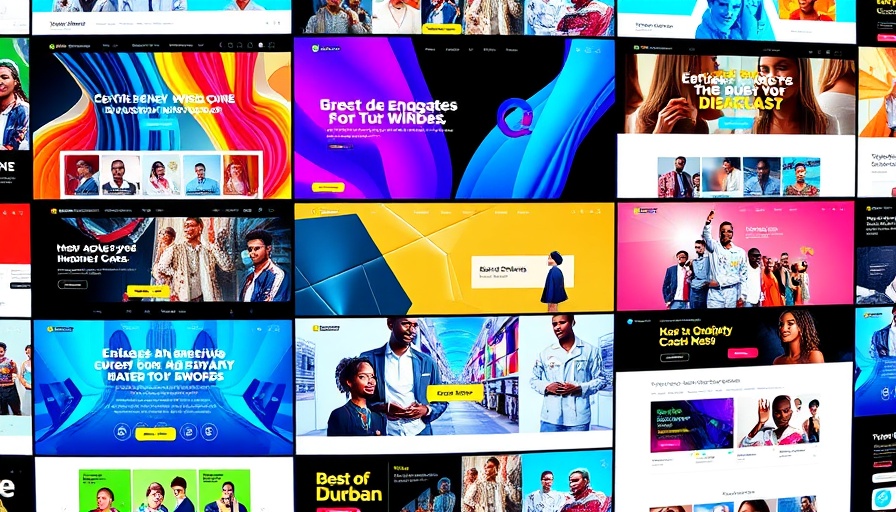
How to Leverage Your Nominations and Stand Out
As businesses in Durban gear up for the Best of Durban 2025, it offers a timely opportunity to explore how local establishments can elevate their brands and foster community support. Winning awards is not merely about receiving accolades; it’s about building relationships, developing brand loyalty, and ultimately increasing visibility in a competitive property market.
Understanding the Voting Landscape of Durban
The Best of Durban competition is a celebration of local excellence, attracting huge participation each year. Last year’s competition saw an overwhelming total of 429,503 votes, with over 4,000 businesses participating across various categories. To make an impact, businesses must appreciate the local culture and values that resonate with voters, ensuring they position themselves as authentic and trustworthy.
Engaging Your Community: Strategies for Success
To enhance visibility and ensure that you earn votes, engaging with your community is essential. Building a rapport with local clientele will inherently increase the likelihood of their support. Strategies such as personalized outreach, community events, and showcasing customer testimonials can build this crucial rapport. It’s about creating a genuine connection, which is vital for businesses looking to capitalize on their nominations.
The Power of Social Media: Connection and Promotion
In today's digital age, leveraging social media is critical. Businesses should utilize platforms like Facebook, Instagram, and Twitter to announce their nominations actively. Creative campaigns can drive excitement and encourage followers to share their good news; for instance, a social media challenge that invites customers to vote while sharing their experiences can amplify reach significantly. Providing clear instructions on how to vote can help eliminate any potential barriers.
Creating Incentives: Motivation to Vote
This year, the Best of Durban has introduced a prize draw for those who vote for ten or more businesses, which can be leveraged to entice more voters to participate. Businesses should advertise this incentive across their platforms. For example, promoting the chance to win return flights or luxury hotel stays could be a compelling draw for local voters to engage with multiple categories.
Building a Brand Advocate Network
Enlisting local influencers can accelerate your brand's reach. By partnering with these community figures, businesses can promote their participation in the awards, tapping into the influencer’s established trust and following. Encouraging satisfied customers to become brand advocates can also bolster this initiative. Their voices can significantly impact public perception and garner more votes.
Your Team as Brand Champions
Your employees can be invaluable assets in promoting your nomination. Encouraging your staff to share their workplace pride on their networks can lead to authentic engagement. It highlights not only the company but also the people behind the scenes who strive for excellence every day.
Authenticity: The Heart of Customer Engagement
More than merely winning, Durban recognizes genuine passion. Businesses should let their unique brand values shine. The **Best of Durban** award is about more than business—it’s about community. Recognizing the impact of transparency and honesty in dealing with your clientele cultivates a loyal customer base who won't hesitate to support you.
Conclusion: The Path Forward for Nominated Businesses
In summary, participating in the Best of Durban 2025 is about harnessing community connections, effectively utilizing digital marketing, and fostering employee engagement. For businesses seeking to replicate the success of Prop Data, initiating these strategies could well place them in the spotlight at next year’s awards. Whether in tech or retail, the recognition earned can amplify growth by opening doors and cementing reputations in the local market.
Good luck to all contenders, and make your mark in Durban!
 Add Row
Add Row  Add
Add 




Write A Comment